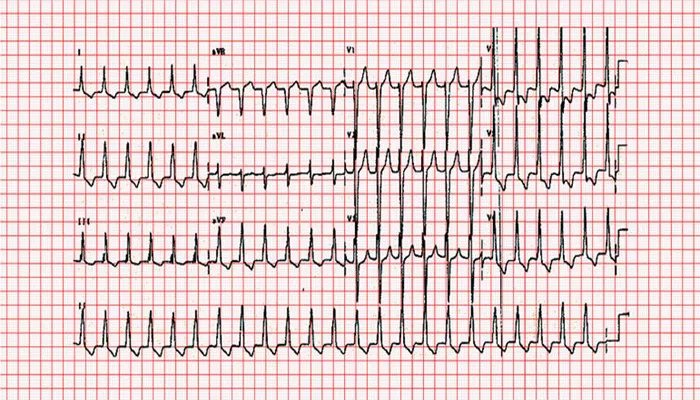Atrial flutter is a common cardiac arrhythmia characterized by rapid and organized electrical impulses in the atria, leading to a fast heartbeat. It is particularly prevalent among the elderly population, where it poses significant health risks, including stroke and heart failure. Understanding the causes of atrial flutter in older adults is crucial for effective prevention and management. As individuals age, their cardiovascular system undergoes various changes, and the presence of comorbidities increases the likelihood of developing this condition. This article explores the specific causes of atrial flutter in the elderly, providing a detailed overview of each contributing factor.
Causes of Atrial Flutter in the Elderly
1. Structural Heart Changes
As people age, their hearts undergo structural changes that can predispose them to atrial flutter. These changes include:
Atrial Enlargement: Aging often leads to an increase in the size of the atria due to factors like hypertension and heart valve disease. Enlarged atria can create an environment conducive to abnormal electrical circuits that trigger atrial flutter.
Fibrosis: The accumulation of fibrous tissue within the heart muscle is common in older adults. This fibrosis disrupts normal electrical conduction pathways, making it easier for arrhythmias like atrial flutter to develop.
2. Hypertension
High blood pressure is one of the most significant risk factors for atrial flutter in the elderly. Chronic hypertension can lead to:
Increased Atrial Pressure: Elevated pressure within the atria can cause them to stretch and remodel, increasing the risk of arrhythmias.
Heart Failure: Hypertension is a leading cause of heart failure, which further exacerbates atrial dilation and increases susceptibility to atrial flutter.
3. Heart Valve Disorders
Degenerative changes in heart valves are common with aging and can lead to conditions such as:
Mitral Valve Stenosis: This condition narrows the mitral valve opening, causing increased pressure in the left atrium and promoting atrial flutter.
Aortic Stenosis: Similar to mitral valve issues, aortic stenosis can lead to left ventricular hypertrophy and subsequent left atrial enlargement, increasing arrhythmia risk.
4. Coronary Artery Disease
Coronary artery disease (CAD) is prevalent among older adults and contributes significantly to arrhythmias through:
Ischemic Changes: Reduced blood flow to heart tissue can cause damage that disrupts normal electrical activity.
Previous Myocardial Infarction: A history of heart attacks can lead to scar tissue formation in the myocardium, which may act as a substrate for arrhythmias like atrial flutter.
5. Heart Failure
Heart failure is both a consequence and a contributor to atrial flutter:
Volume Overload: In heart failure, increased fluid volume can lead to atrial dilation and increased pressure, creating an environment conducive to arrhythmias.
Reduced Cardiac Output: Inadequate pumping ability can lead to further structural changes in the heart that promote atrial flutter.
6. Diabetes Mellitus
Diabetes is associated with several cardiovascular complications that can increase the risk of atrial flutter:
Autonomic Neuropathy: Diabetes can affect nerve function, leading to dysregulation of heart rate control mechanisms.
Increased Inflammation: Chronic inflammation associated with diabetes may contribute to structural changes within the heart that predispose individuals to arrhythmias.
7. Hyperthyroidism
An overactive thyroid gland can significantly impact heart rhythm:
Increased Heart Rate: Hyperthyroidism leads to elevated levels of thyroid hormones that increase metabolic rate and heart rate, potentially triggering episodes of atrial flutter.
Atrial Remodeling: Prolonged hyperthyroidism can cause structural changes in the atria similar to those seen in other conditions associated with arrhythmias.
8. Chronic Obstructive Pulmonary Disease (COPD)
COPD is another condition frequently observed in older adults that can lead to atrial flutter:
Hypoxia: Low oxygen levels due to impaired lung function can affect cardiac performance and promote arrhythmias.
Right Heart Strain: COPD may lead to right-sided heart strain and enlargement, which can predispose individuals to arrhythmias originating from the right atrium.
9. Lifestyle Factors
Several lifestyle-related factors contribute significantly to the development of atrial flutter:
Alcohol Consumption: Excessive alcohol intake has been linked with increased risk of developing arrhythmias due to its effects on myocardial structure and function.
Obesity: Overweight individuals are at higher risk for developing conditions such as hypertension and diabetes, both of which are known contributors to atrial flutter.
Smoking: Tobacco use damages blood vessels and promotes cardiovascular disease, increasing susceptibility to arrhythmias.
10. Medications and Stimulants
Certain medications and substances may also play a role:
Stimulants: The use of stimulants such as caffeine or certain cold medications can trigger episodes of atrial flutter by increasing heart rate and altering electrical conduction pathways.
Medication Side Effects: Some medications prescribed for other conditions may have side effects that contribute to arrhythmias; it is essential for healthcare providers to monitor patients closely when prescribing these drugs.
Conclusion
Atrial flutter is a complex condition influenced by multiple factors, particularly in the elderly population. Understanding these causes is essential for effective management and prevention strategies. The interplay between structural heart changes, comorbidities such as hypertension and diabetes, lifestyle factors, and medication use creates a multifaceted risk profile for older adults. By addressing these underlying issues through lifestyle modifications, proper management of chronic conditions, and careful medication oversight, healthcare providers can help reduce the incidence of atrial flutter among their elderly patients.
Related topics:
- Why Does Hypokalemia Cause Arrhythmia?
- How Common Is Respiratory Sinus Arrhythmia?
- What Arrhythmia Treatments Do Electrophysiologists Provide

